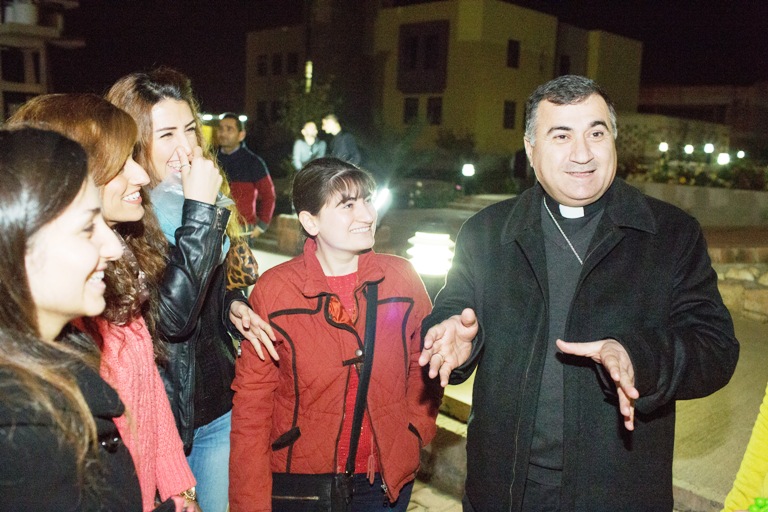|
Iraqi prelate considers options for recapture of Christian territories, homes
Tuesday, May 5, 2015
"If the government were to want to free Mosul first, many Muslims would flee from the city to the countryside because of the fighting. And where would they go? The would probably go to the currently abandoned Christian settlements near Mosul. This would create further difficulties."
By Oliver
Maksan
NEW YORK —"Should signs emerge of the recapture of
the Christian towns and villages occupied by ISIS, it would fill the Christian
refugees with great hope and encourage them to stay." This is the firm
belief of the Chaldean Archbishop Bashar Matti Warda of Erbil, capital of
Kurdish Iraq.
The archbishop, in whose diocese tens of thousands of Christian refugees
have sought refuge, told international Catholic charity that it will at least be
several months, however, before the areas occupied by ISIS in Mosul and on the
nearby Niniveh Plain can be liberated.

Last summer, more than 125,000 Christians fled from Mosul and the Niniveh Plain
ahead of the advancing Islamic State (ISIS) terrorist militia. However, the archbishop
anticipates further difficulties if the occupied territories are freed. He
said: “if the government were to want to free Mosul first, many Muslims would
flee from the city to the countryside because of the fighting. And where would
they go? The would probably go to the currently abandoned Christian settlements
near Mosul. This would create further difficulties. On the other hand, if the government
were to begin its operations on the Nineveh Plain, however, the Christian
settlements could be seriously affected by the fighting."
Warda was sceptical as to whether international protection of Christian territories
close could be realized once they had been liberated. "It would be
important, but many countries will think twice before sending troops into this
tricky situation. It would need to be preceded by a reconciliation process in
the affected areas so that the Muslim neighbours did not see an international
force of this kind as a hostile presence. I therefore believe it more likely that
we will rather go in the direction of a national guard,” the prelate said.
According to Warda, the national guard would rely on local people, but be
integrated into the Iraqi army. "We as a Church have made it clear from
the outset that we are against a [separate] Christian militia. We suggest that our
young people, if so inclined, join the Kurdish or Iraqi forces."
Archbishop Warda regards a visit by Pope Francis to Iraq as essential
for the long-term welfare of the Chaldean Church. "I spoke to His Holiness
in person last November and told him that we would be delighted to welcome him
in Erbil. He replied that he would be pleased to come, but that his staff would
not allow him to at present." The archbishop said a visit is possible, but
that “it will take a little time."
The archbishop described the condemnations of ISIS's deeds by Muslim
clerics as inadequate so far. "We have not heard any genuine condemnations
which reject these deeds. For the most part, Sunni imams denounce the crimes
only because they damage the reputation of Islam. But what about the victims?
“My impression, when I hear speeches by Sunni clerics, is that they
would be fine” if ISIS atrocities would not draw such media attention. He
acknowledged that there are voices in the Islamic world calling for a new
interpretation of Islam. "However, I believe that we are just at the
beginning here.”
Archbishop Warda and Christian refugees: ACN photo
|